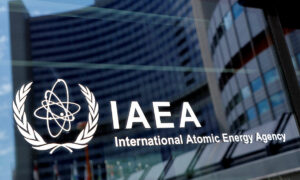THE PHILIPPINES has made significant progress in its pursuit of nuclear energy, though further work is needed on its strategy, according to an assessment issued by the International Atomic Energy Agency (IAEA).
The IAEA concluded its Follow-Up Integrated Nuclear Infrastructure Review (INIR) on Dec. 6 at the request of the government.
In a statement last week, the IAEA said that the INIR mission team noted that the Philippines has made “significant progress to address most of the recommendations and suggestions and has adopted a national position for a nuclear energy program.”
In 2022, an executive order outlined the government’s support for the inclusion of nuclear energy in the power mix.
In September, the Department of Energy (DoE) unveiled a nuclear energy roadmap, which calls for commercially operational nuclear power plants by 2032, with at least 1,200 megawatts (MW) of capacity, gradually increasing to 4,800 MW by 2050.
The mission also noted the drafting of a comprehensive law, and strengthened capacities in human resource development, regulatory frameworks, radiation protection, radioactive waste management, and emergency preparedness and response.
“I thank the IAEA for its invaluable partnership and for conducting this objective and professional review, which underscores the Philippines’ commitment to adhering to global standards and best practices in nuclear infrastructure development,” Energy Secretary Raphael P.M. Lotilla said in a statement on Sunday.
“This collaboration strengthens our ability to adopt nuclear energy responsibly alongside renewable energy sources, driving us closer to our goal of inclusive and sustainable economic growth,” he added.
The mission team indicated, however, that further work is needed to complete necessary studies for future activities related to the electrical grid, industrial involvement, and national legislation.
In a separate statement on Sunday, the DoE said that the Philippines and the US have finalized the Guiding Document, which establishes a framework for regular and structured engagement in the energy sector.
“This document is designed to facilitate meaningful collaboration and ensure the effective development and implementation of joint programs,” the DoE said.
The two countries convened their second Energy Policy Dialogue last week, reinforcing their shared commitment to advancing energy security, expanding access, and accelerating the clean energy transition.
“At the core of these discussions is a shared focus on advancing the deployment of renewable energy technologies to reduce carbon emissions, modernizing and expanding energy transmission infrastructure to meet growing demand, and exploring nuclear energy as a potential option for electricity generation,” the DoE said.
The dialogue also tackled the need for access to financing, innovative technology, and resilient infrastructure to support a “just energy transition.” — Sheldeen Joy Talavera

